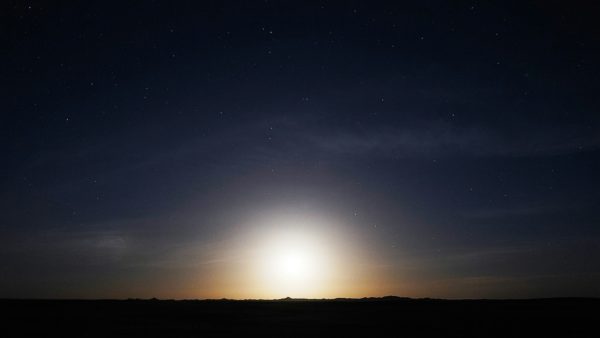The Shanghai Institute of Applied Physics says China will build the world’s first large-scale molten-salt-cooled thorium reactor in the Gobi Desert next year, reports the South China Morning Post.
China’s National Nuclear Safety Administration approved the design last year.
The 60MW reactor is expected to be complete in 2029.
The institute completed a 2MW test reactor in the Gobi Desert in Gansu province in October last year (see further reading).
It validated advanced alloys that can withstand high temperatures, radiation and corrosion.
The institute said that meant the reactor could give China energy independence.
A second advantage is that salt-cooled reactors don’t need to be near water, as uranium reactors do.
A third is that more than 80% of the spent fuel can be recycled and the remaining waste vitrified for disposal.
In China, the waste will be buried deep under the Gobi Desert.
The Post reports that the 60MW reactor will be on a 1-hectare site near the 2MW test reactor, which will be used for ongoing research.
Also planned are wind and solar farms, a molten-salt-based energy storage system, a thermal power plant, and a hydrogen production base.
Beginning in 2030, China plans to build a fleet of modular reactors with an electric generation capacity of 100MW or more.
Thorium-powered ships
These may not all be located on land. In December, Chinese shipbuilders unveiled the world’s first design for a container ship powered by a thorium molten-salt reactor that would be able to transport 24,000 containers.
The “KUN-24AP”, which would be the largest ship ever built, is being developed by Jangnan Shipyard, also in Shanghai.
Better metallurgy needed
The Oak Ridge National Laboratory in the US completed the first thorium-based molten salt reactor in 1965.
But the metallurgy of the time was not advanced enough for continuous operation and it was shut down in 1969.
In recent years, TerraPower, founded by Bill Gates, has been collaborating with Oak Ridge to restart the thorium fuel reactor project and promote the development of sustainable nuclear energy technologies.
Some countries rich in thorium, such as Malaysia and Indonesia, have also begun nuclear research projects.
Subscribe here to get stories about construction around the world in your inbox three times a week.
Further reading:
The post China plans 60MW thorium reactor in Gobi Desert by 2029 appeared first on Global Construction Review.


